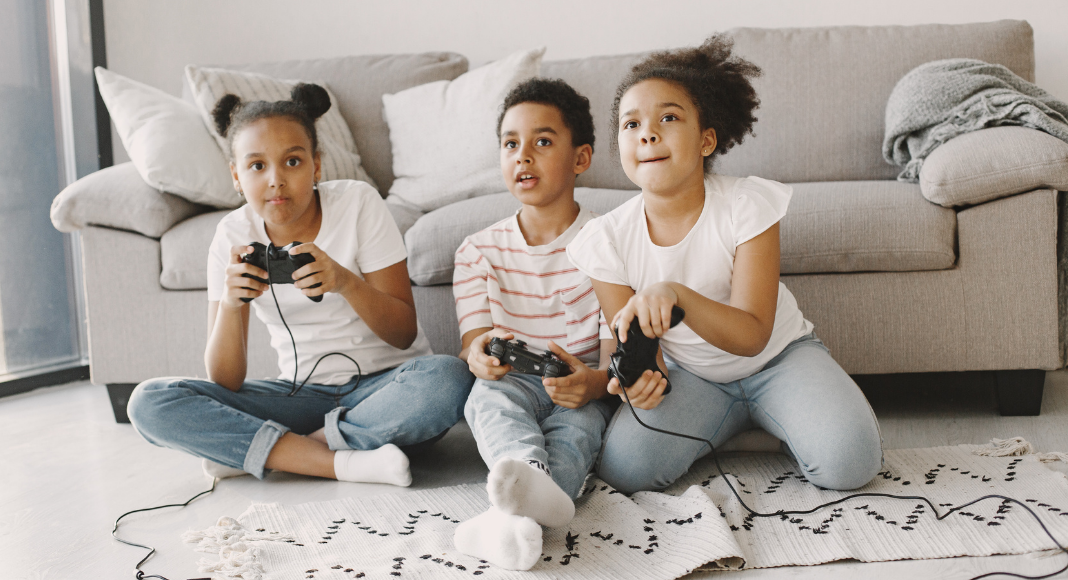 It started about three years ago with a surprise Christmas present for my son that yielded squeals of joy and excitement but now, three years later, that present has created stress and concern.
It started about three years ago with a surprise Christmas present for my son that yielded squeals of joy and excitement but now, three years later, that present has created stress and concern.
I’m talking about video games. My son received a PlayStation 4 along with a stack of games that one Christmas, and ever since, it escalated to him wanting more games and other systems and, ultimately, more game time.
During quarantine, many parents, including myself, did allow more screen time because we were trying to stay afloat between juggling our own work each day on top of e-learning and Zoom meetings and All. The. Things. We were drowning, and we were told to give ourselves grace and let the kids have more time with their electronics so we could maintain sanity. I totally get it; what a crazy time that was! We all did the best we could, right?
But now, I feel that the residual of that time has left an imprint that I’m still trying to erode, slowly but surely. I love my son to pieces, and when he’s not playing video games, he’s building or drawing or wanting to be active with sports. More and more, though, I find I have to peel him away from wanting to play Fortnite or Minecraft, or even to stop talking about video games, or wanting to watch YouTube videos about various video games. Pretty often, especially amidst one of his eager and detailed diatribes about his “skins” or “V bucks” or characters or weapons, I feel I am reminding him, jokingly, yet not jokingly, there’s more to life than video games.
I truly miss the pre-video game days where all he wanted was to play outside or build a huge tower with his Legos or make slime or run around the house playing with his zillion toys. We still do those things, but the older he gets, it just seems…harder. The daily battle to manage his video game excitement makes things seem…harder. I feel stressed because it’s almost like a battle to reframe his thinking some days when he’s “all in” for game time and I’m in full mama-is-concerned-it’s-too-much mode. I know the gift was meant to be a treat and something fun to do, but I wish it was never given to him.
The bright side is that video games can help kids in some ways, such as visual perception, multi-tasking, and processing information quickly. But taken too far and used excessively, they can certainly affect social skills, potentially create health issues due to less exercise/movement, contribute to poor quality of sleep and ultimately affect grades at school.
I know I am not alone and that many parents are faced with this issue of finding balance, and the good news is we do have options and ways to manage video games, screen time, and electronics in general. Here are some strategies that I have found helpful with my 9-year-old boy!
- Have your child read and do homework FIRST.
Each day my son jumps off the bus and excitedly talks about his school day, but I know it’s inevitable he’s going to soon ask for two things: A snack (lol…all the snacks) and if he can play PS 5. Yet, our rule is we always do our homework, and we read a chapter from a book before any screen time or video game usage. When you prioritize the most important thing…learning…then you ensure it is completed and a routine is established.
- Set a time limit.
This one is a must and is going to be tested at times. Set a reasonable time limit and stick to it! Establishing a routine and creating boundaries are always important.
- Try to get physical activity in before gaming or screen time.
Just like prioritizing school work, reading, or learning time in general, physical activity also merits focus and attention. When you can promote staying mobile and active and make that a consistent aspect of your child’s life, you are setting them up for a healthier, less sedentary lifestyle. My son recently told me, “Sitting is the new smoking,” and I’m sure he was regurgitating that from school (tee hee), but he was right! Our bodies need to move, and the earlier kids make exercise and movement a priority, the better. If they start their screen time or video games before doing physical activity, they might become too tired or unmotivated to move, or the night can get away from you as a parent, so it’s best to knock out the good stuff first!
- Introduce new hobbies.
Maybe there’s a new sport, hobby, or activity that might pique your child’s interest. My son recently started to enjoy lifting weights. Granted, he’s using little dumbbells, but HEY! I’m super excited that he’s spending more time being active instead of gaming. And soccer season is starting up soon, so I know that will also take center stage as well. He also started to take a bigger interest in modeling clay, so lately, he’s been enjoying a new box of clay he received on his birthday. The trick is finding something that captures their interest and attention more than video games or YouTube videos. It can be hard at times, but it can be done…lol!
- Incentivize play time
Maybe making your child earn their screen time or game time by doing chores, meeting certain benchmarks at school, or completing volunteer work is a good idea. Whatever the goal may be, perhaps achieving certain incentives will help keep game time balanced and positive.
- Sunshine to the rescue
Now that spring is here and warmer days are ahead, we will be especially grateful for more motivation to get outside and away from the TV and video games. Hello, sunshine and Vitamin D!








